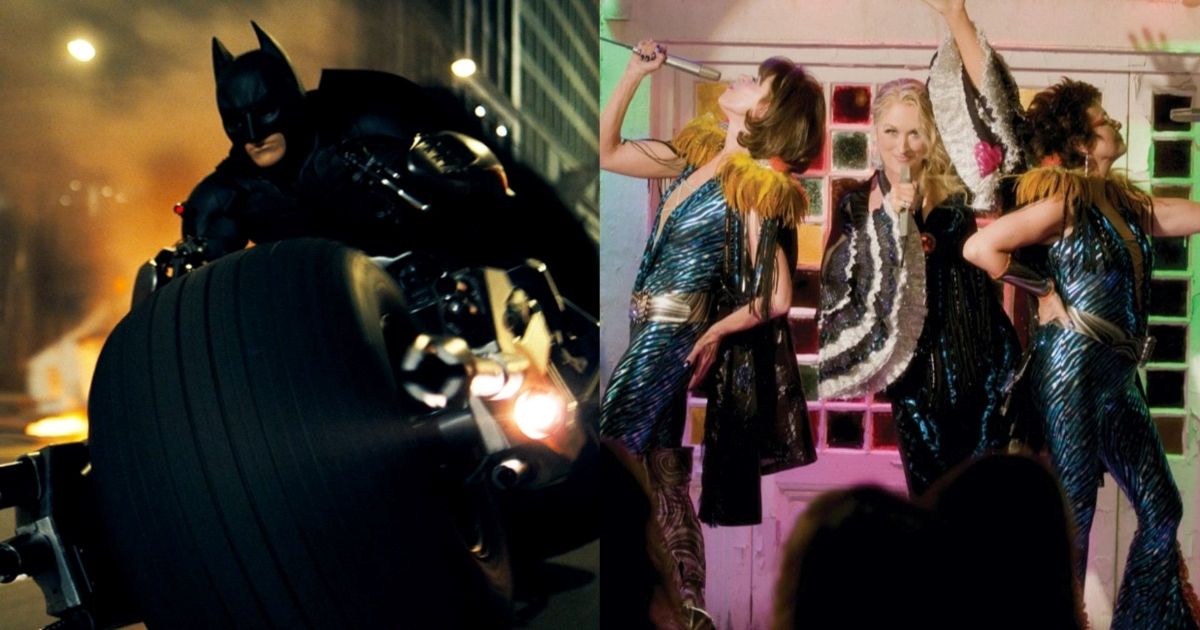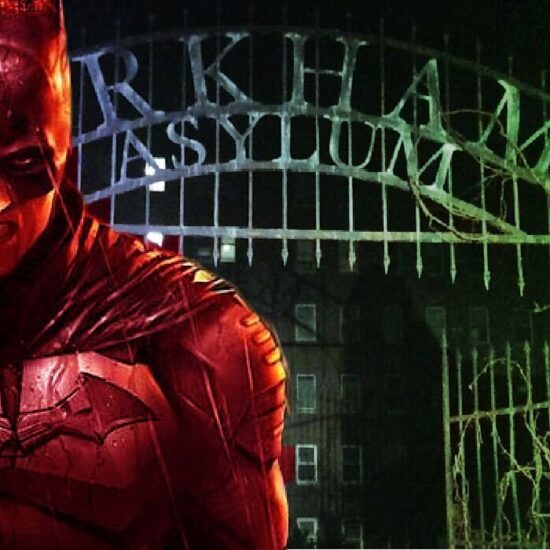
If the Barbenheimer match-up between Barbie and Oppenheimer feels a little familiar to you, it’s because director Christopher Nolan already experienced this phenomenon 15 years ago.
On July 18, 2008, Nolan released The Dark Knight, a film that would eventually go on to arguably become the best comic book movie of all time. On that very same weekend, the songs of ABBA also dominated multiplexes when the movie adaptation of the hit Broadway musical Mamma Mia! hit the big screen.
The movies couldn’t be more opposite to one another, but the big takeaway from that weekend, much like the one we’re seeing right now with Barbie and Oppenheimer, is that counter-programming can lead to big box office results for both films in question. Counter-programming is usually a conscious strategy employed when two very different movies are put out to the public simultaneously to avoid much of a fight for box office dollars.
The idea is that one film might appeal to one demo more than the other, so having a plan B offering allows the other demo to also enjoy a trip to the movies. In the case of The Dark Knight, that film skewed more male and had a bit of a broad appeal with young and older audiences.
Mamma Mia skewed heavily female, a demo that always proves to come out for the films that are sold in their direction (see Fifty Shades of Grey, Bad Moms, Magic Mike, etc.). That July 18 weekend was all about separating the Batman fans from the ABBA fans while giving both films a fair chance at box office gold. If you find an audience down for a double feature, it’s a win-win for both.
The Dark Knight and Mamma Mia Both Had Built-In Fanbases
The Dark Knight was a marketing giant in a much different way than Mamma Mia. Warner Bros. sold the film with a very innovative interactive viral marketing campaign that enticed the fanbase. The film also had a bit of tragic marketing with the passing of the film’s Joker, Heath Ledger, who died from an accidental drug overdose months before the film’s release.
Ledger’s casting was initially met with the typical internet backlash that accompanies most comic book movie adaptations, but that tide turned when the first images of the actor were released as the character. That very image began to win fans over, and once the actor passed, the naysayers suddenly became believers and wanted to see what he brought to the table. Trailers and TV spots only fueled the notion that Ledger was up to the task and that The Dark Knight could be bigger and even better than its predecessor.
Mamma Mia had a leg up because it was based on a very popular musical that began its life in 1999. Much like the musical, the film is based on the songs of the Swedish pop group ABBA, known for such hits as Dancing Queen, The Winner Takes It All, and Gimme! Gimme! Gimme! (A Man After Midnight).
You would find it hard to find anyone that doesn’t get down to any of their catchy tunes, which is what made the Broadway musical a huge hit once it hit the stage. The film version was intriguing because of the eclectic ensemble cast that it attracted.
The world wanted to know if Meryl Streep, Amanda Seyfried, and Pierce Brosnan, among others, could actually carry a tune. The Dark Knight and Mamma Mia weren’t really pitted against each other in the same way that we saw with Barbie and Oppenheimer ahead of their release, but there are some similarities that the two offbeat weekends at the box office share.
Mamma Mia, much like Barbie, takes a very tongue-in-cheek approach to its concept. Everything is a bit exaggerated, but not too much where you doubt the validity of the production. The Dark Knight, much like Oppenheimer, is much darker and decidedly more realistic. Even as a comic book film, Nolan’s Batman embraces its realism and allows itself to be much more than a standard superhero movie.
A key difference between today’s Barbenheimer and the box office showdown between The Dark Knight and Mamma Mia is social media. In 2008, internet message boards were the dominant source of opinionated outrage and joy. Today we have social media for junior cinephiles to spread the word of internet discourse.
The funny melee between Barbie and Oppenheimer started on social media when both films tended to announce additions to their growing ensemble casts pretty much around the same time. Knowing that they would be released on the same weekend only fueled the social media fun, especially since the films were very different from each other in tone. Had The Dark Knight and Mamma Mia been released on the same weekend today, you’d likely be seeing similar posts about Batman battling it out with ABBA.
Despite Key Differences, The Dark Knight and Mamma Mia Both Found Success
What we’re seeing with Barbenheimer now is that it went from a battle between two films to a shared purpose of both movies being successful for the sake of the industry. One film didn’t have to win over the other. There is room for both releases at the box office, and with both titles earning excellent reviews, there was a new joy in seeing two very good films become successful.
As we see from early box office numbers, even though Barbie is winning the war, the battle is being won by both movies because the numbers for each are strong enough to make the industry forget about the dismal June it faced when certain high-profile releases failed to ignite the box office.
A similar feat occurred in 2008 with The Dark Knight and Mamma Mia. The Batman sequel was a huge hit upon release, opening to a staggering $158.4 million on its way to an eventual domestic gross of $534.9 million and $1 billion globally, becoming the first comic book film to hit the milestone.
While Mamma Mia didn’t have a massive opening weekend, debuting in second place with $27.7 million was a win, and the most important thing for the movie musical was it had legs. Budgeted at just $52 million, Mamma Mia grossed $144.1 million at the domestic box office, and thanks to the international appeal of the stage show and ABBA, the film grossed $694.4 million globally.
At the end of the day, there was room for both films to find success at the box office. The lesson learned 15 years ago and the one we’re seeing this very weekend is that there isn’t one target audience to cater to. Everyone wants to enjoy a trip to the movies, and every demo is craving a release that appeals to them.
Counter-programming can be essential to the financial success of film releases because it allows the totality of the audience to find something to enjoy. At the end of the day, it really isn’t a war between films fighting for scraps. It’s a united front where both releases can claim a win in box office supremacy.














